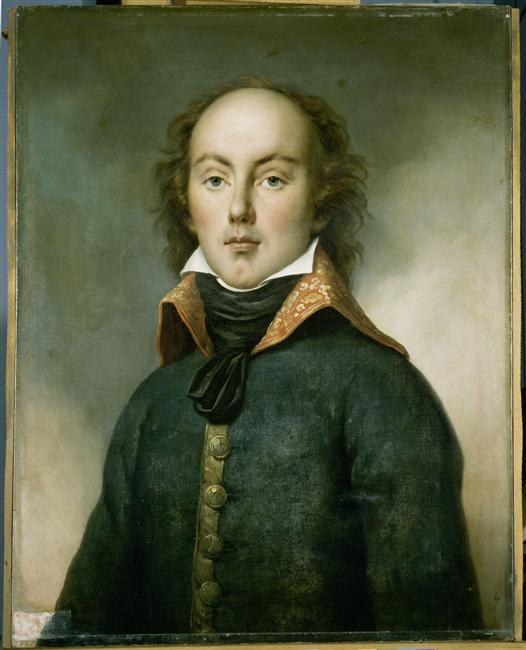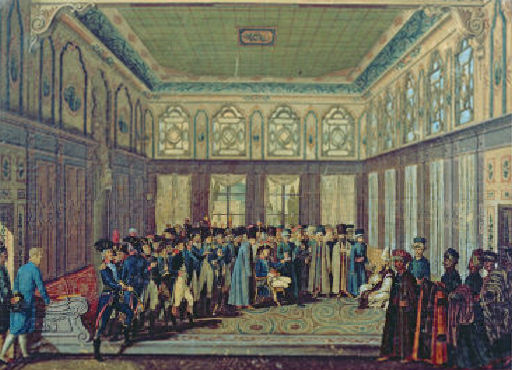Aubert-Dubayet on:
[Wikipedia]
[Google]
[Amazon]
 Jean-Baptiste Annibal Aubert du Bayet (19 August 1759,
Jean-Baptiste Annibal Aubert du Bayet (19 August 1759,
 In 1796, General Aubert du Bayet was appointed as ambassador ("Minister of the Republic") to the
In 1796, General Aubert du Bayet was appointed as ambassador ("Minister of the Republic") to the
 Jean-Baptiste Annibal Aubert du Bayet (19 August 1759,
Jean-Baptiste Annibal Aubert du Bayet (19 August 1759, Louisiana
Louisiana , group=pronunciation (French: ''La Louisiane'') is a state in the Deep South and South Central regions of the United States. It is the 20th-smallest by area and the 25th most populous of the 50 U.S. states. Louisiana is borde ...
– 17 December 1797, Istanbul
Istanbul ( , ; tr, İstanbul ), formerly known as Constantinople ( grc-gre, Κωνσταντινούπολις; la, Constantinopolis), is the List of largest cities and towns in Turkey, largest city in Turkey, serving as the country's economic, ...
) was a French General and politician during the period of the French Revolution
The French Revolution ( ) was a period of radical political and societal change in France that began with the Estates General of 1789 and ended with the formation of the French Consulate in November 1799. Many of its ideas are considere ...
.
Aubert du Bayet was born in Baton-Rouge in the French American colony of Louisiana in 1759. Aubert du Bayet participated in the campaigns in America during the American Revolutionary War
The American Revolutionary War (April 19, 1775 – September 3, 1783), also known as the Revolutionary War or American War of Independence, was a major war of the American Revolution. Widely considered as the war that secured the independence of t ...
.
French revolution
Aubert du Bayet arrived in France at the beginning of the Revolution, but was initially hostile to revolutionary ideas. While in Metz, as a young Captain, he published an anti-Jewish pamphlet entitled ''Le cri du citoyen contre les Juifs''. However, he soon saw that it could serve his ambitions. He became a member of the legislature in 1791. Aubert du Bayet was President of the French National Assembly (the " Legislative Assembly") from 8 July 1792 to 22 July 1792. In 1793, he served as General of Brigade in the heroic defense of Mayence in 1793, when he finally had to surrender to thePrussian Army
The Royal Prussian Army (1701–1919, german: Königlich Preußische Armee) served as the army of the Kingdom of Prussia. It became vital to the development of Brandenburg-Prussia as a European power.
The Prussian Army had its roots in the co ...
. He then seconded Hoche
Louis Lazare Hoche (; 24 June 1768 – 19 September 1797) was a French military leader of the French Revolutionary Wars. He won a victory over Royalist forces in Brittany. His surname is one of the names inscribed under the Arc de Triomphe, on ...
in Vendée
Vendée (; br, Vande) is a department in the Pays de la Loire region in Western France, on the Atlantic coast. In 2019, it had a population of 685,442.
in the fight against the Chouans
Chouan ("the silent one", or "owl") is a French nickname. It was used as a nom de guerre by the Chouan brothers, most notably Jean Cottereau, better known as Jean Chouan, who led a major revolt in Bas-Maine against the French Revolution. Part ...
in the War in the Vendée
The war in the Vendée (french: link=no, Guerre de Vendée) was a counter-revolution from 1793 to 1796 in the Vendée region of France during the French Revolution. The Vendée is a coastal region, located immediately south of the river Loir ...
. He then became Minister of Defense of France ("Minister of War
A defence minister or minister of defence is a cabinet official position in charge of a ministry of defense, which regulates the armed forces in sovereign states. The role of a defence minister varies considerably from country to country; in som ...
") from 3 November 1795 to 8 February 1796.
Ambassador to the Ottoman Empire
 In 1796, General Aubert du Bayet was appointed as ambassador ("Minister of the Republic") to the
In 1796, General Aubert du Bayet was appointed as ambassador ("Minister of the Republic") to the Ottoman Empire
The Ottoman Empire, * ; is an archaic version. The definite article forms and were synonymous * and el, Оθωμανική Αυτοκρατορία, Othōmanikē Avtokratoria, label=none * info page on book at Martin Luther University) ...
. He was sent to the Ottoman court with artillery equipment, and French artillerymen and engineers to help with the development of the Ottoman arsenals and foundries. Infantry and cavalry officers were also to train the Spahis
Spahis () were light-cavalry regiments of the French army recruited primarily from the indigenous populations of Algeria, Tunisia and Morocco. The modern French Army retains one regiment of Spahis as an armoured unit, with personnel now r ...
and Janissaries
A Janissary ( ota, یڭیچری, yeŋiçeri, , ) was a member of the elite infantry units that formed the Ottoman Sultan's household troops and the first modern standing army in Europe. The corps was most likely established under sultan Orhan ( ...
, but they were frustrated by the opposition of the Janissaries. Ironically, some of these troops, trained to Western methods, were successfully employed against the French troops of Napoleon
Napoleon Bonaparte ; it, Napoleone Bonaparte, ; co, Napulione Buonaparte. (born Napoleone Buonaparte; 15 August 1769 – 5 May 1821), later known by his regnal name Napoleon I, was a French military commander and political leader who ...
a few years later under Sir Sydney Smith
Sydney Smith (3 June 1771 – 22 February 1845) was an English wit, writer, and Anglican cleric.
Early life and education
Born in Woodford, Essex, England, Smith was the son of merchant Robert Smith (1739–1827) and Maria Olier (1750–1801), ...
at the Siege of Saint-Jean d'Acre in 1799. Their behaviour delighted Selim III
Selim III ( ota, سليم ثالث, Selim-i sâlis; tr, III. Selim; was the Sultan of the Ottoman Empire from 1789 to 1807. Regarded as an enlightened ruler, the Janissaries eventually deposed and imprisoned him, and placed his cousin Mustafa ...
, and upon their return, they were named ''Nizam-gedittes'' or "New Regulars", but they were eventually slaughtered and dispersed by the Janissaries
A Janissary ( ota, یڭیچری, yeŋiçeri, , ) was a member of the elite infantry units that formed the Ottoman Sultan's household troops and the first modern standing army in Europe. The corps was most likely established under sultan Orhan ( ...
and conservative clerics and politicians, leading to the deposition of Selim III.
Aubert du Bayet died of fever in 1797 while in Constantinople. His widow returned to France and married to his long-time assistant Jean-François Carra de Saint-Cyr.
See also
*Franco-Ottoman alliance
The Franco-Ottoman Alliance, also known as the Franco-Turkish Alliance, was an alliance established in 1536 between the King of France Francis I and the Sultan of the Ottoman Empire Suleiman I. The strategic and sometimes tactical alliance was o ...
Notes
External links
{{DEFAULTSORT:Aubert Du Bayet 1759 births 1797 deaths Politicians from Baton Rouge, Louisiana Ambassadors of France to the Ottoman Empire French generals Members of the Legislative Assembly (France) 18th-century French diplomats 18th-century French military personnel 18th-century French politicians Military leaders of the French Revolutionary Wars French Republican military leaders of the French Revolutionary Wars Republican military leaders of the War in the Vendée French Ministers of War